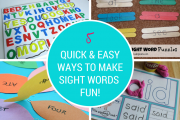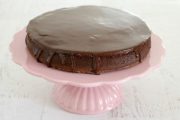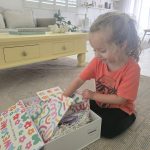Why The NAPLAN Test Causes Such A Stir
Every year, Grade 3, 5, 7 and 9 students across Australia complete the NAPLAN test… and every year without fail, it causes a massive stir amongst politicians, parents and teachers. So what is the NAPLAN and are there any actual benefits to doing it?
Image: MacKillop Penrith
What is the NAPLAN test?
The NAPLAN test stands for ‘National Assessment Program – Literacy and Numeracy’. It is basically the governments way of tracking educational trends and results across the country. It also provides parents with information about how their child performed on the tests in comparison to the national average. There are 4 different tests that students complete:
- reading
- writing
- language conventions (spelling, grammar and punctuation)
- numeracy
Image: Southport State High School
Why the government thinks the NAPLAN tests are important:
- The tests allow the government to establish national standards based on the data.
- It provides parents with information about how their child is performing compared to a national average.
- It allows teachers to identify students who need extending and those who need further support.
- The tests enable schools to identify where their own strengths and weaknesses are, and address them accordingly.
- The government is provided with key data that helps to assist in their school performance plans, as well as teaching and learning support for teachers.
- They emphasise that the NAPLAN test is a no-pass/no-fail test.
- The government states that schools should not be ‘drilling’ practise tests prior to the NAPLAN.
Image: Literacy Educators
Why it causes such a stir (aka – why people don’t like it!):
- The NAPLAN tests are not a true reflection of a child’s abilities – they only provide a snapshot of a child during one particular time, on one particular day.
- The tests advantage those students who excel on written tests and disadvantage those students who are hands-on, kinaesthetic learners.
- Children are not one-dimensional and being given a score compared to the ‘national average’, does not in any way acknowledge the vast skills and strengths of each child.
- The NAPLAN tests can lead to a huge amount of anxiety amongst students.
- Many schools spend an entire term ‘drilling’ the tests over and over again so that their school performs highly. This takes away from valuable teaching time and gives them an advantage against other schools who have been focusing on a holistic and meaningful approach to teaching throughout the term.
- While the data provides teachers with information on students they need to be further supporting or extending, chances are they already know this and have strategies in place! It could be argued that in a well run classroom, the NAPLAN data is not going to tell the teacher anything that he/she doesn’t already know.
So what’s the answer?
Clearly the NAPLAN tests do provide important information to the government about general trends across the nation. In fact, the NAPLAN tests helped to provide evidence that Australia needed to implement a national curriculum, which they have now successfully done. BUT (and it’s a big but!), the NAPLAN tests are not the be-all and end-all. As a parent, it’s a good idea to view the results and see if there are any ways you can help to either extend or support your child further. However, it’s so important to remember (and tell your child) that the NAPLAN is not a true reflection of who they are as a person. They have strengths that the NAPLAN test is unable to assess. Each child is special and unique and their importance cannot be measured in a number against the ‘national average’.
What do you think of the NAPLAN tests?
















